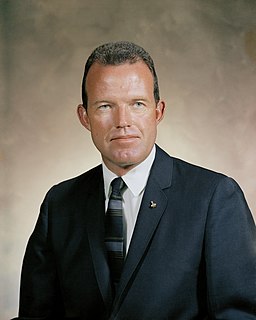A Quote by Jim Walton
During the war, in which several of our embedded correspondents were able to report from moving vehicles crossing the Iraqi desert, the use of technology made news gathering safer.
Related Quotes
Embedded in every technology there is a powerful idea, sometimes two or three powerful ideas. Like language itself, a technology predisposes us to favor and value certain perspectives and accomplishments and to subordinate others. Every technology has a philosophy, which is given expression in how the technology makes people use their minds, in how it codifies the world, in which of our senses it amplifies, in which of our emotional and intellectual tendencies it disregards.
Television and movies were our biggest teachers. When we came to the United States, the Vietnam War was just ratcheting up. And so the Asian faces that I saw on the news, they were the face of the enemy. Asian men, particularly, were either small, ineffective, or they were evil. And those messages were deeply, deeply embedded in me for many years.
Americans would have a right to go to war with the Iraqis if we could name one author from Iraq. It disturbs me that we're going to war with somebody we know absolutely nothing about. Name one Iraqi poet, one Iraqi woman activist, one Iraqi singer. Name one Iraqi novelist. You can't. And how can you go kill someone you don't know anything about?
Several days in a row we sighted groups of metallic, saucer-shaped vehicles at great altitudes over the base Germany, 1951 and we tried to get close to them, but they were able to change direction faster than our fighters. I do believe UFOs exist and that the truly unexplained ones are from some other technically advanced civilization.
Technology enables consumers and investors to have extraordinary choice and ease of switching, which, in turn, stimulates much fiercer competition than ever before, which, in turn, makes it imperative for every institution to innovate like mad. That innovation is powering our economy these days, and it requires companies to find and utilize creative workers. That's the most important syllogism going; technology is embedded in that syllogism, but it's not as if we're seeing these productivity gains because of the technology.
Today we all are enjoying the fruits of the digital era. Millions of sources of information coming at us at lightning fast speed. That technology has also democratized the gathering and dissemination of news, allowing for 'citizen journalists' to make their mark, even usurping the role of mainstream news organizations at times.



































